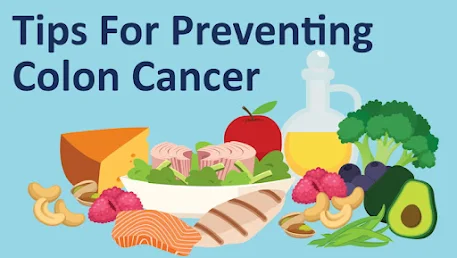In 80% of cases, colorectal cancer is preceded by benign adenomatous polyps — which means that if they are detected in time, the disease can be prevented.
Colorectal cancer is one of the more common cancers in the US. About 1 in 25 people in the United States will develop colon or rectal cancer at some point during their lifetime. But there are things you can do to help lower your risk.
How To Prevent Colon And Rectal Cancer
Here are 6 ways to help protect your colorectal health.
1. Get screened for colorectal cancer.
Screenings are tests that look for cancer before signs and symptoms develop. These tests can find colon or rectal cancer earlier when treatments are more likely to be successful. The American Cancer Society recommends testing starting at age 45 for people at average risk. Some colorectal screening tests can also find and remove precancerous growths (polyps) in the colon or rectum. Polyps are not cancer, but over time cancer can start in the polyps. Removing them lowers the risk of cancer. Talk to your health care provider about when you should start screening and which tests might be right for you.
2. Eat lots of vegetables, fruits, and whole grains. Diets that include lots of vegetables, fruits, and whole grains have been linked with a decreased risk of colon or rectal cancer. Also, eat less red meat (beef, pork, or lamb) and processed meats (hot dogs and some luncheon meats), which have been linked with an increased risk of colorectal cancer.
3. Get regular exercise. If you are not physically active, you may have a greater chance of developing colorectal cancer. Being more active may help reduce your risk.
4. Take control of your weight. Being overweight or obese increases your risk of getting and dying from the colon or rectal cancer. Eating healthier and increasing your physical activity can help you control your weight.
5. Don’t smoke.
People who have been smoking for a long time are more likely than people who don't smoke to develop and die from the colon or rectal cancer.
6. Avoid alcohol. Alcohol use has been linked with a higher risk of colorectal cancer. It is best to not drink alcohol. But if you do, the American Cancer Society recommends no more than 2 drinks a day for men and 1 drink a day for women. A single drink equals 12 ounces of beer, 5 ounces of wine, or 1½ ounces of 80-proof distilled spirits (hard liquor).
Research shows that habits related to diet, weight, and exercise are strongly linked to colorectal cancer risk. Changing some of these lifestyle habits may be hard. But making the changes can also lower the risk for many other types of cancer, as well as other serious diseases like heart disease and diabetes.
Adults should do at least 150-300 minutes a week (2.5 to 5 hours) of moderate-intensity physical activity with aerobic exercise - for example, walking.
SOURCE: https://www.cancer.org











six years ago I experienced dark urine and ribs pain so I went to the hospital for treatment and I was diagnosed with Herpes. The doctor gave me antiretroviral drugs to slow down the viral load which later worsens the ailment because the drugs weren’t effective and I was so scared because they say it has no cure, out of frustration I told my friend about it and luckily he told me he once battled same problem in the past but he was saved by Dr okosun, an african herbalist and He gave me his contact and i reached him and began the treatment and i was tested negative after four weeks of taking his liquid herbal medicine.
drokosun55@gmail.com
Colon cancer symptoms can vary, but common signs include changes in bowel habits, rectal bleeding, and abdominal discomfort. These symptoms can also be caused by other conditions, so it's crucial to consult a doctor for proper diagnosis and treatment. Screening, especially for those over 45, is vital for early detection and improved outcomes, I am grateful for the good work and healing restoration Dr. Aboda has done it for my family, my mother is 85% free from cancer after using the herbs we got from Dr. Aboda health center. Here is Dr Aboda Website For More Info. drabodasolution@gmail.com
https:// dr-aboda-solution-home.jimdosite.com/
THANK YOU DOC ...